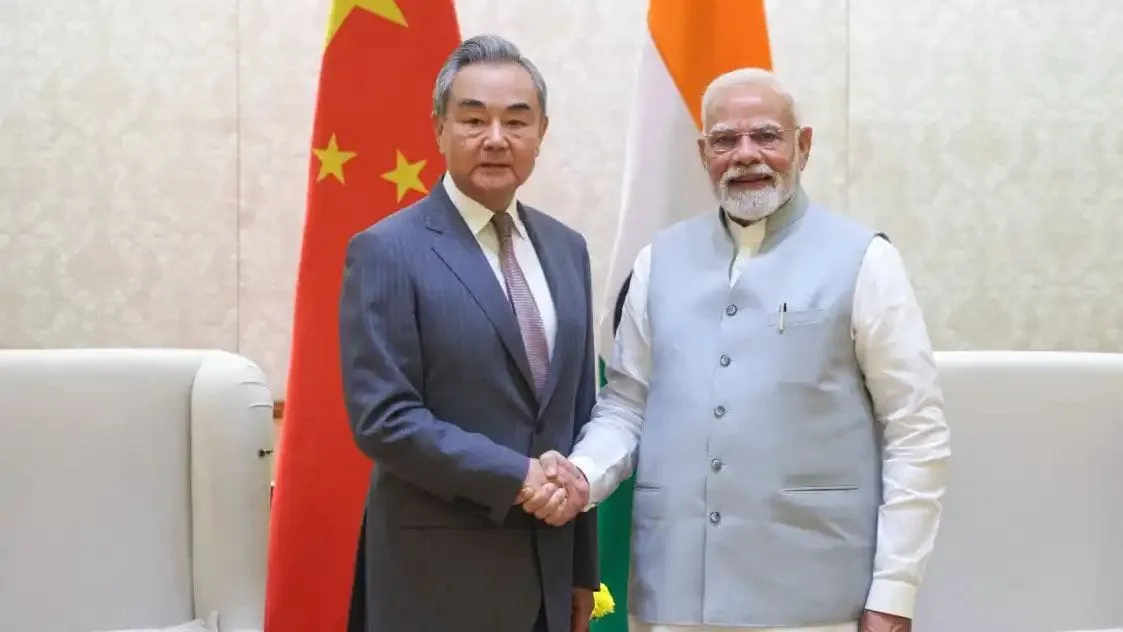In a significant step toward easing regional tensions, Prime Minister Narendra Modi hosted Chinese Foreign Minister Wang Yi in New Delhi this week. The high-level meeting comes at a time when the two neighboring nations are seeking to recalibrate ties amidst changing global geopolitical dynamics. Both leaders expressed a strong commitment to strengthen India-China relations, emphasizing dialogue, mutual respect, and cooperation. Senior officials from both delegations also noted that this interaction symbolizes a new chapter in bilateral diplomacy intended to enhance trust and stability.
Setting the Tone for Bilateral Cooperation
During deliberations, Prime Minister Modi underscored the importance of maintaining peace along the border regions, stating that stability at the boundary directly contributes to broader cooperation in trade, technology, and cultural exchange. On his part, Wang Yi reiterated that Beijing values New Delhi’s role in Asia-Pacific affairs and looks forward to fostering stronger economic ties. The message from both sides was clear: India and China recognize that constructive engagement is critical not only for their own future but also for the stability of the entire region.
Focus on Trade and Economic Growth
Economic collaboration was at the forefront of the talks. Prime Minister Modi noted that both countries, being among the world’s fastest-growing economies, have immense opportunities to expand trade and investment. With bilateral trade crossing a significant mark in recent years, discussions focused on balancing trade imbalances, promoting joint ventures, and enhancing cooperation in manufacturing. Wang Yi highlighted China’s willingness to encourage more imports from India, particularly in pharmaceuticals, agricultural products, and IT services. Their shared aim is to create a fair and sustainable economic framework that benefits both sides.
Addressing Border Stability and Security Concerns
Another crucial aspect of the meeting revolved around security issues, particularly concerning the longstanding India-China border tensions. Prime Minister Modi reaffirmed that maintaining peace at the border is a prerequisite for progress in broader ties. Both nations agreed to accelerate dialogue through established military and diplomatic channels to prevent future conflicts. By focusing on mutual sensitivity, respect for sovereignty, and open communication, the leaders displayed a willingness to solve problems through diplomacy rather than confrontation.
Energy, Climate, and Global Cooperation
Both India and China acknowledged their roles as key players in global climate negotiations. Wang Yi and Prime Minister Modi discussed expanding cooperation on clean energy, renewable resources, and climate transition technologies. Given their status as two of the world’s largest energy consumers, their collaboration in this field could set the stage for collective climate action across Asia. They also agreed to enhance coordination in multilateral platforms such as BRICS, SCO, and G20, to address issues like energy security, sustainable growth, and international peacekeeping.
Cultural and People-to-People Engagement
Cultural diplomacy was equally emphasized during the visit. Prime Minister Modi highlighted the importance of fostering academic exchanges, tourism growth, and strengthening cultural ties. Both leaders agreed to simplify visa processes, encourage student exchanges in medical and engineering fields, and promote collaboration in traditional medicine and spiritual practices. The revival of these soft linkages is expected to strengthen mutual understanding between Indian and Chinese societies.
Regional and Global Significance
The broader implication of Wang Yi’s trip lies in how it resonates with regional geopolitics. Analysts point out that with major powers realigning strategies, India and China maintaining open communication lines is paramount. The visit sends a strong message that both nations, despite differences, are willing to pursue constructive ties. It also showcases that India’s leadership under Prime Minister Modi emphasizes diplomacy, dialogue, and cooperation rather than conflict-driven approaches.
A Step Toward Resetting Relations
This engagement between Prime Minister Modi and Wang Yi is seen as more than a diplomatic formality—it marks a potential reset in the bilateral relationship. Both leaders reaffirmed their vision of a future driven by peaceful coexistence, shared prosperity, and collaboration in global forums. While challenges remain, particularly in security and trade balances, this meeting offers hope for a more pragmatic, cooperative relationship that benefits both India and China as well as the broader region.
Looking Ahead
Experts believe that this meeting has laid the foundation for a more nuanced partnership. The emphasis on economic collaboration, cross-border stability, and cultural exchange reflects a comprehensive strategy to ensure long-term peace and development. While both nations may continue to face complex challenges, the dialogue between Prime Minister Modi and Wang Yi represents a rare moment of optimism in recent years. If followed with tangible actions, this meeting could reshape the trajectory of India-China relations in the coming decade.
Disclaimer: This article is a journalistic write-up for informational purposes only. It summarizes recent diplomatic developments between India and China and does not represent any official government statement or policy document.
